The views expressed in our content reflect individual perspectives and do not represent the authoritative views of the Baha'i Faith.
Some theologians and scholars of religion, and even some Buddhists, argue that the Buddha was just a man, and made no claim to divine Revelation – so Buddhism, they insist, cannot really be a religion. According to these sources, the Buddha was only an enlightened being, a man like all men, who founded a philosophy, not a Manifestation of God who founded a Faith.
One way to characterize the difference between the Founder of a religion and a founder of a philosophy involves understanding the difference between one who claims superhuman knowledge about truth; and one who pursues and makes discoveries about truth through their own efforts. Because both a Prophet and a philosopher make efforts for the truth in different ways — the Prophet through the mystical path of prayer, meditation and revelation, the philosopher through study and mental exercise – we can best see the difference in the claim they each make.
Prophets claim their knowledge is uncommon and given to them in a mystical way not given to others. A Prophet’s knowledge and insight may be shared, but possessing that knowledge does not make one a Prophet – only a disciple. At best, a disciple can only attain partial knowledge. A philosophy student, however, may eventually surpass the teacher.
The domain of the philosopher is the mind, whereas the domain of the Prophet is truth – which encompasses heart, mind and soul. Both are undeniably human, but with an enormous difference in station. A philosopher like Socrates or Aristotle may have a lasting impact on the way we think, but a Prophet of God creates a great Faith, attracts millions of followers and changes the course of history.
Many other theologians speculate that it is important for the Chosen Ones, the Prophets and Messengers of God, to be just as human as the rest of us. If they are not, the argument goes, then they could not have enough in common with us to help us gain mastery over ourselves. Could this be a reason why the Buddha emphasized his human aspects? If so, that emphasis seems common in many different Faiths, because Christ, Muhammad, and Baha’u’llah have also done the same thing by emphasizing their own humanity.
Baha’is clearly believe that Buddha was a Prophet, the founder of a great world Faith, and not just another philosopher. Clearly, much of the East understands the Buddha this way, too. The countless temples that dot the East showing the Buddha in superhuman communion with Being itself, being that Being, tells a different story. Millions of Buddhists take daily refuge with the three jewels of Buddhism: the Buddha, the Law, and the Order.
This reverence and worship is not a secular act; it aligns the believer with both the spiritual teachings of Buddhism and its community, but also with the divine Messenger that brought them. Recent scholarship argues that from the earliest times, the Buddha was venerated as a semi-divine being, one of a series of divine teachers (Buddhas) God sends us —just as the Baha’i teachings proclaim.
Buddhists in the West sometimes say that we are all Buddhas. They typically mean that when the followers of the Buddha gain enlightenment, they share in the glory of Buddha-hood and partake of his nature as Christians partake of the nature of Christ when they follow him. They do not mean that any person can become the Buddha or have the potential to found a religion. As the Buddha Himself explained:
The Tathagata (all-conquering), brethren, who, being Arahant (liberated), is fully enlightened, He it is who doth cause a Way to arise which hath not arisen before: who doth bring about a Way not brought about before: who doth proclaim a Way not proclaimed before: who is the knower of a Way, who understandeth a Way, who is skilled in a Way. And now, brethren, His disciples are wayfarers who follow after Him. That, brethren, is the distinction, the specific feature which distinguishes the Tathagata who, being Arahant, is Fully Enlightened, from the brother who is freed by insight. – In Some Sayings of the Buddha, Oxford Press, p. 193.
Baha’is believe the Buddha was not just another religious teacher or philosopher, but that he fulfills the definition of a Prophet of God. There is divine authority and power in the teachings of the Buddha, and his teachings form one of the world’s great Faiths:
Each religion teaches that a mediator is necessary between man and the Creator — one who receives the full light of the divine splendor and radiates it over the human world, as the earth’s atmosphere receives and diffuses the warmth of the sun’s rays. This mediator between God and humanity has different designations though he always brings the same spiritual command. In one era he is called Abraham, at another time Moses, again he is called Buddha, another time Jesus, and yet another time Mohammad. – Abdu’l-Baha, Divine Philosophy, p. 32.
For followers of Buddha, choosing His Way was not voluntary for those who wished to travel the spiritual path. The Buddha says of His eightfold path: “This is the path, there is no other that leads to the purifying of the mind. Go on this path!”
When disciples follow the Way revealed by the Buddha, they are following Him. He is the Way the only Way to salvation for His people. This is the same Way that Christ revealed and commanded his followers to follow. The Buddha of Buddhism, like the Christ of Christianity, stands in the exact center of that Faith’s spiritual universe. He is the granter of salvation and the revealer of the Way. He is loved beyond any mortal comparison and His words are regarded as sacred. In short, Buddhism was and is, as Baha’is believe, a divine religion sharing a common foundation with other religions.
You May Also Like
Comments



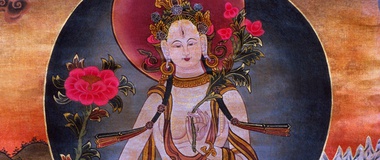
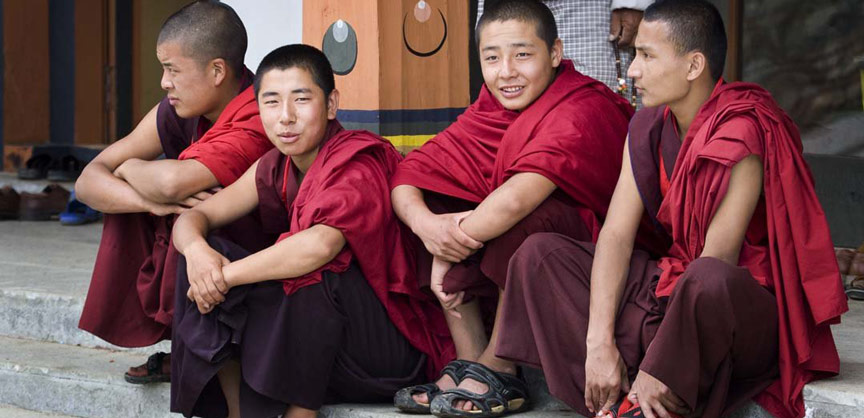

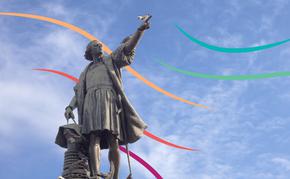



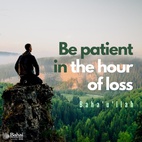


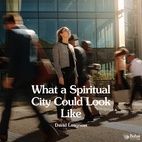
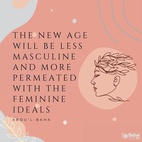



When it comes to Laozi, though, I wonder. There is a story of Kongzi going to meet him just before the Daoist master's death, which strikes me as the visit of a great, capacious mind to the Source of mindfulness, a pilgrimage. I've read two translations of the Dao De Qing, and find it wonderful, mysterious, marvellous. It comes with a voice of authority that reminds me of the mystical writings of Baha'u'llah (Hidden Words), or the sayings of Christ. He's less known than Kongzi, and who knows why. I have a Chinese Baha'i friend who had respected the Dao before learning of the Baha'i Teachings, and who is now studying and trying to memorize it. The teachings of the Faith have really illumined her understanding of the ancient text, she feels, and she also has good enough English that she enjoyed reading and critiquing Laozi in translation. So: was Laozi a Manifestation of God? My study and my heart suggest that he very well might've been, though there's no way to confirm this. It is useful, though, as an example of the Baha'i (and Muslim, and Buddhist, and...) belief that there have been many Enlightened Ones, beyond counting and history, and for non-authoritative ME, Christ's "by their fruits ye shall know them" put Master Lao high on my list of speculative honour.
Thanks, Mr. Tai-Seale, for this ongoing education.